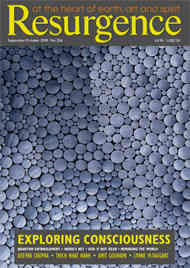To many people Deepak Chopra is renowned for his writing and lecturing in relation to the practice and experience of spirituality. In this book, Chopra has chosen to focus upon the teachings of Jesus, as recorded in certain translations of both the New Testament and the Gnostic gospels; interpreting them, aiming to elucidate their relevance to modern life, and providing a potentially practical pathway for their understanding and practice.
The book is thus one that those familiar with Chopra’s writings will find of great interest. It may also be of value to persons following a Christian faith, or faiths that encompass or utilise Jesus’ teachings, should they be open enough to accept Chopra’s interpretations. The book aims to help many people open up to an alternative means of perceiving reality, aiding balance and understanding in their own lives and those of others, and becoming closer over time to ‘god’ – whatever that term means on a personal level.
The principal statement that summarises Chopra’s book is that Jesus’ teachings cannot be properly understood unless one is in the unifying state of “god-consciousness”. An allied statement is that Jesus’ teachings, and faith itself, may aid the attainment of god-consciousness over time, but that readers might benefit from the clarification, interpretations, and practical exercises provided in the book. Chopra suggests that ways of life and interpretations of the Bible that are not yet coming from this state of god-consciousness may inherently have missed the point and meaning of Jesus’ teachings, with consequent repercussions.
Chopra’s book begins by discussing why Jesus’ teachings have seemingly not, thus far, proven to be practicable or possible to live by. There then follows a brief discussion and recognition as to the actuality or otherwise of Jesus, the New Testament, the Gnostic gospels and evidences for or against the same. The book looks at some of Jesus’ fundamental teachings, commenting upon and interpreting them. The later sections then cover the author’s recommended paths and specific exercises to realise and experience increasing god-consciousness over time, and how that may be experienced as one progresses along the path. The book finishes by imagining what Jesus might make of today’s societies and Christianity.
All in all, The Third Jesus is primarily intended as a practical book. It is, however, recommended that readers delve more deeply into its contents and open their minds more than might ordinarily be the case when reading: it is recommended that they be flexible enough in mind to consider ascertaining their own level of consciousness, since otherwise that which is interpreted might not equate to that which had been intended.
Inevitably, given the nature of the book, questions and misunderstandings are bound to arise. I query Chopra’s interpretations in several areas, but I try to keep my mind open and ponder further upon these conundrums.
While I was reviewing this book, two Jehovah’s Witnesses came to the door to give me a book entitled What Does the Bible Really Teach? I commented upon this serendipity and showed them Chopra’s book. In a manner akin to an invisible wall coming down between us, all communication on the subject ceased. It seems Chopra’s initial tenet was exceedingly prescient.






